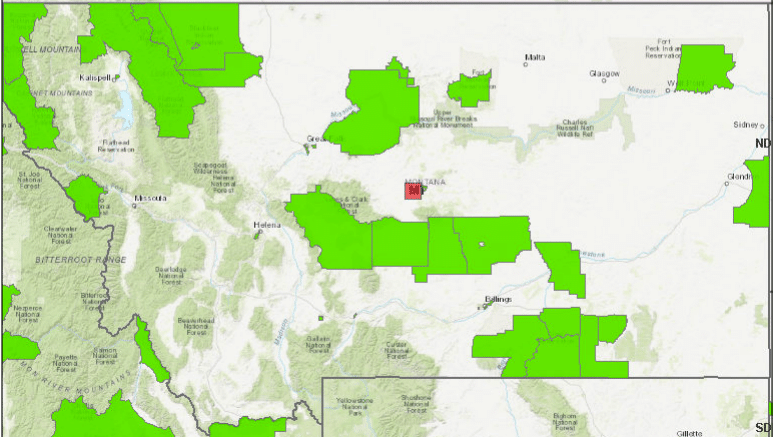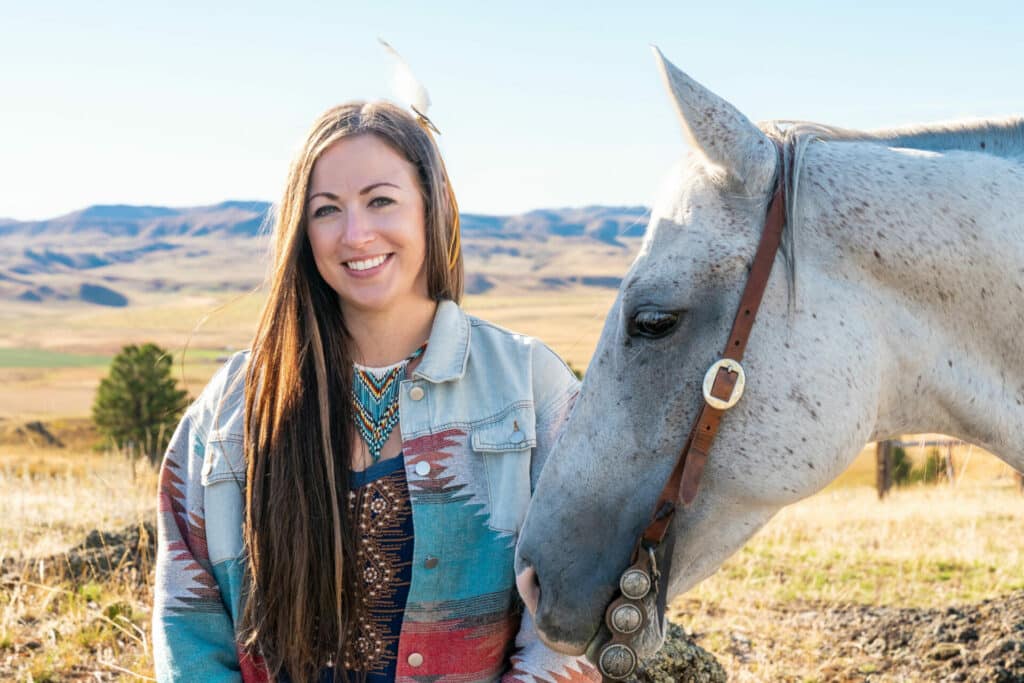To live healthy lives, we must have ready access to healthful foods. Not having enough to eat and limited access to nutritious foods can negatively impact how we feel and increase the risk and severity of conditions like diabetes and high blood pressure.
Unfortunately, many communities across Montana don’t have adequate access to food – healthy or otherwise. This problem, known as “food insecurity,” is particularly serious for Native communities.
Nationally, American Indian people have among the highest rates of food insecurity, and the COVID-19 pandemic’s impacts on supply chains and finances have intensified this problem in many communities. At the same time, the pandemic has highlighted the resiliency of Native communities. Tribal Nations throughout the U.S. are building innovative responses and strengthening local food systems in response to the pandemic’s challenges.
Many rural areas lack access to stores that sell nutritious foods and produce. In rural areas like much of Montana, “food deserts” are defined as areas that don’t have access to fresh produce within ten miles of a rural town. This United States Department of Agriculture map shows the food deserts in the state.

Local food production can benefit the diet, food security, and economy of rural communities. For Native communities, local food systems may be deeply rooted in culture, history, and self-determination. A growing “food sovereignty” movement in Indigenous communities worldwide and throughout the U.S. seeks to rebuild local food systems in Native communities. By one definition, food sovereignty is:
“The right of peoples to healthy and culturally appropriate food produced through ecologically sound and sustainable methods, and their right to define their own food and agriculture systems.”
– Declaration of Nyéléni, the first global forum on food sovereignty, Mali, 2007
To address the outsized impact of the pandemic on American Indian people in Montana, this year, we funded several food sovereignty projects in American Indian communities.
This work is part of our Reducing American Indian Health Disparities Initiative, where we support Tribal Nations to address basic health needs – like housing, food security, education, and employment.
So far, we’ve funded three Native-led nonprofits and the Chippewa Cree Tribe of Rocky Boy Montana to address food insecurity and COVID-19 relief through developing food sovereignty projects.
Although these projects are new and the work is early, we wanted to provide an update on these critically important efforts.
FAST BLACKFEET
Working Toward a Healthy, Food Secure Blackfeet Nation
FAST Blackfeet is a Native-led nonprofit located in Browning. It works to increase food access, reduce food insecurity, and improve nutritional intake and knowledge in the Blackfeet Nation.
The Ō´yō´•ṗ’ (We Are Eating) Food Pantry is a vital hub for FAST Blackfeet programs. It makes nutritious food readily available to families and aids in chronic disease prevention through clinics and dietitian counseling.
During the pandemic, FAST Blackfeet recognized that to meet the growing need families had for healthful food, it would have to expand its operations infrastructure quickly. This project helped FAST Blackfeet bring on new staff and support a new mobile service, Ō´yō´•ṗ’ On Wheels. The mobile service began delivering food to those in quarantine and those living in remote areas of the reservation.
FAST Blackfeet provided 360 turkey dinners for Thanksgiving this year – dropping off food boxes at distribution sites and driving out of town to deliver them to people in their homes.
THE CHIPPEWA CREE TRIBE OF ROCKY BOY MONTANA
Food Sovereignty Project
The Rocky Boy Indian Reservation, home of the Chippewa Cree Tribe, is a designated food desert. The nearest grocery store selling fresh foods is over 30 miles away.
The Chippewa Cree Tribe’s vision is to develop a food chain of healthy products grown and produced on the reservation. It wants to plant home gardens, produce and market local products like flour and pasta, and establish food handling laws.
While several different initiatives focus on providing food to people living on the reservation, there hasn’t been a consistent collaboration among programs.
With this project, the tribe hired a project coordinator to oversee all food sovereignty efforts. The project coordinator makes sure the different initiatives work together to meet the community’s needs and helps the tribe update its food policy guidelines.
ARLEE DEVELOPMENT CORPORATION
Pivoting from Emergency Food Response to Food Sovereignty Programming with Healthy Local Foods
The Arlee Community Development Corporation (Arlee CDC) runs runs the Arlee-Jocko Valley Food Pantry providing food distribution, community dining, and garden box programs for the Jocko Valley and the Confederated Salish and Kootenai Tribes.
The Arlee CDC is establishing a walk-in, choice-based food pantry and resource center that provides local food options and accepts Double SNAP Dollars. This benefit helps people add more fresh produce to their food budgets. When people use their SNAP benefits, they receive a dollar-for-dollar match that they can use to buy more fruits and vegetables.
The program’s vision is to create a rural food pantry that is less dependent on staple foods of low quality and instead emphasizes healthy local food choices. This project provides resources for the food pantry to form partnerships with local produce and livestock growers and to sustain the project in the long term.
So far, local farmers regularly donate root crops (potatoes, onions, beets, carrots), and a local beef producer is donating grass-fed beef.
“Choosing local foods an important procurement method for the Food Pantry. The ability to purchase locally grown foods, share recipes, provide cooking classes, and support our neighbors is truly making a difference in our community.”
– Arlee Food Resource Center
DAY EAGLE HOPE PROJECT
Aaniiih/Nakoda Food Sovereignty on the Fort Belknap Indian Reservation
The Day Eagle Hope Project is a Native-led nonprofit supporting cancer prevention, treatment, and management on the Fort Belknap Indian Reservation. It is also a state-certified food bank that works to reintroduce native and organic foods back into the community and provide education on healthy foods and living.
While the food bank has historically been a resource for people who have cancer, during the pandemic, it began delivering food boxes to people in quarantine – delivering over 1,000 boxes to date.
This project is helping the food bank purchase fresh food, support transportation costs for delivering food across the reservation, and build community partnerships. Partners include the Fort Belknap Indian Community, which helps with food delivery services, and the Fort Belknap Tribal Health Department, which provides healthy eating and living education.
“I am writing on behalf of my family and me as I express my gratitude to Day Eagle Hope for the produce boxes. I am a single mom, grandmother, and college student, so any help to provide for my family is always welcomed and greatly appreciated.”
– Food Bank Recipient
